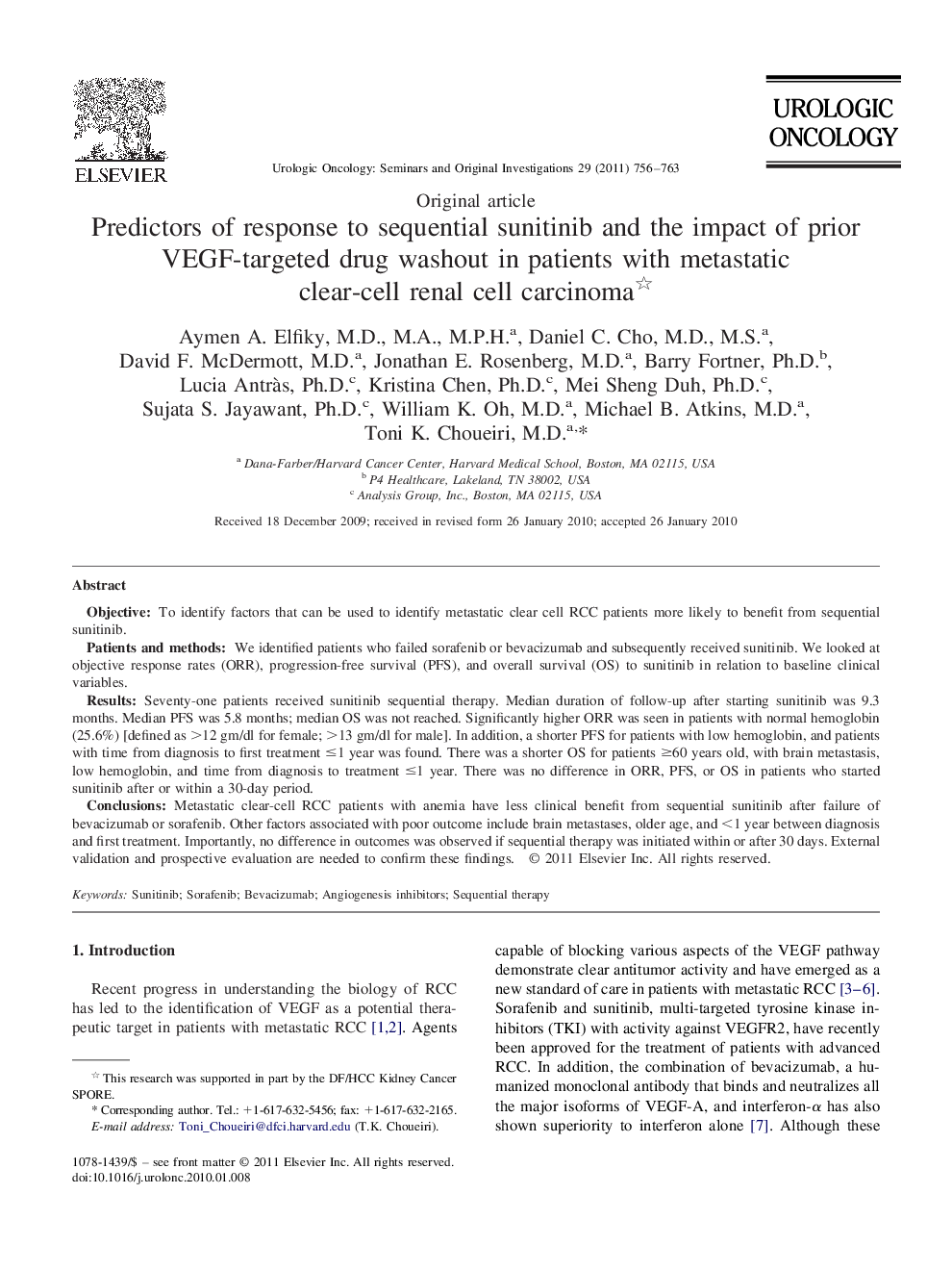| Article ID | Journal | Published Year | Pages | File Type |
|---|---|---|---|---|
| 4000316 | Urologic Oncology: Seminars and Original Investigations | 2011 | 8 Pages |
ObjectiveTo identify factors that can be used to identify metastatic clear cell RCC patients more likely to benefit from sequential sunitinib.Patients and methodsWe identified patients who failed sorafenib or bevacizumab and subsequently received sunitinib. We looked at objective response rates (ORR), progression-free survival (PFS), and overall survival (OS) to sunitinib in relation to baseline clinical variables.ResultsSeventy-one patients received sunitinib sequential therapy. Median duration of follow-up after starting sunitinib was 9.3 months. Median PFS was 5.8 months; median OS was not reached. Significantly higher ORR was seen in patients with normal hemoglobin (25.6%) [defined as >12 gm/dl for female; >13 gm/dl for male]. In addition, a shorter PFS for patients with low hemoglobin, and patients with time from diagnosis to first treatment ≤1 year was found. There was a shorter OS for patients ≥60 years old, with brain metastasis, low hemoglobin, and time from diagnosis to treatment ≤1 year. There was no difference in ORR, PFS, or OS in patients who started sunitinib after or within a 30-day period.ConclusionsMetastatic clear-cell RCC patients with anemia have less clinical benefit from sequential sunitinib after failure of bevacizumab or sorafenib. Other factors associated with poor outcome include brain metastases, older age, and <1 year between diagnosis and first treatment. Importantly, no difference in outcomes was observed if sequential therapy was initiated within or after 30 days. External validation and prospective evaluation are needed to confirm these findings.
